
| Date | Speaker | Title | Venue |
|---|---|---|---|
| Oct. 17, 2013 2:30p.m. |  Prof. Ivan Stojmenovic Prof. Ivan StojmenovicBiography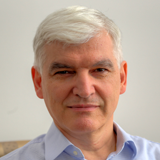 Ivan Stojmenovic received his Ph.D. degree in mathematics. He is Full Professor at the University of Ottawa, Canada. He held regular and visiting positions in Serbia, Japan, USA, Canada, France, Mexico, Spain, UK (as Chair in Applied Computing at the University of Birmingham), Hong Kong, Brazil, Taiwan, China and Australia. He published over 300 different papers, and edited seven books on wireless, ad hoc, sensor and actuator networks and applied algorithms with Wiley. He is editor-in-chief of IEEE Transactions on Parallel and Distributed Systems (2010-3), and founder and editor-in-chief of three journals. He is Associate Editor-in-Chief of Tsinghua Journal of Science and Technology, steering committee member of IEEE Transactions on Emergent Topics in Computing, and editor of IEEE Network, IEEE Transactions on Cloud Computing, IEEE Transactions on Computers, ACM Wireless Networks and some other journals. Stojmenovic is on Thomson Reuters list of Highly Cited Researchers (from 2013; <300 computer scientist), has h-index 59, top h-index in Canada for mathematics and statistics, and >14000 citations. He received five best paper awards and the Fast Breaking Paper for October 2003, by Thomson ISI ESI. He received the Royal Society Research Merit Award, UK (2006), and Humboldt Research Award, Germany (2012). He is Tsinghua 1000 Plan Distinguished Professor (2012-5). He is Fellow of the IEEE (Communications Society, class 2008), and Canadian Academy of Engineering (since 2012), and Member of the Academia Europaea (The Academy of Europe), from 2012 (section: Informatics). He was IEEE CS Distinguished Visitor 2010-11 and received 2012 Distinguished Service award from IEEE ComSoc Communications Software TC. He received Excellence in Research Award of the University of Ottawa 2009. Stojmenovic chaired and/or organized >60 workshops and conferences, and served in >200 program committees. He was program co-chair at IEEE PIMRC 2008, IEEE AINA-07, IEEE MASS-04&07, founded several workshop series, and is/was Workshop Chair at IEEE ICDCS 2013, IEEE INFOCOM 2011, IEEE MASS-09, ACM Mobihoc-07&08. Ivan Stojmenovic received his Ph.D. degree in mathematics. He is Full Professor at the University of Ottawa, Canada. He held regular and visiting positions in Serbia, Japan, USA, Canada, France, Mexico, Spain, UK (as Chair in Applied Computing at the University of Birmingham), Hong Kong, Brazil, Taiwan, China and Australia. He published over 300 different papers, and edited seven books on wireless, ad hoc, sensor and actuator networks and applied algorithms with Wiley. He is editor-in-chief of IEEE Transactions on Parallel and Distributed Systems (2010-3), and founder and editor-in-chief of three journals. He is Associate Editor-in-Chief of Tsinghua Journal of Science and Technology, steering committee member of IEEE Transactions on Emergent Topics in Computing, and editor of IEEE Network, IEEE Transactions on Cloud Computing, IEEE Transactions on Computers, ACM Wireless Networks and some other journals. Stojmenovic is on Thomson Reuters list of Highly Cited Researchers (from 2013; <300 computer scientist), has h-index 59, top h-index in Canada for mathematics and statistics, and >14000 citations. He received five best paper awards and the Fast Breaking Paper for October 2003, by Thomson ISI ESI. He received the Royal Society Research Merit Award, UK (2006), and Humboldt Research Award, Germany (2012). He is Tsinghua 1000 Plan Distinguished Professor (2012-5). He is Fellow of the IEEE (Communications Society, class 2008), and Canadian Academy of Engineering (since 2012), and Member of the Academia Europaea (The Academy of Europe), from 2012 (section: Informatics). He was IEEE CS Distinguished Visitor 2010-11 and received 2012 Distinguished Service award from IEEE ComSoc Communications Software TC. He received Excellence in Research Award of the University of Ottawa 2009. Stojmenovic chaired and/or organized >60 workshops and conferences, and served in >200 program committees. He was program co-chair at IEEE PIMRC 2008, IEEE AINA-07, IEEE MASS-04&07, founded several workshop series, and is/was Workshop Chair at IEEE ICDCS 2013, IEEE INFOCOM 2011, IEEE MASS-09, ACM Mobihoc-07&08.University of Ottawa | Mobile Cloud and Crowd Computing, Communications and Sensing
| LT3 |
| Nov. 18, 2013 1:45p.m. |  Prof. Derong Liu Prof. Derong LiuBiography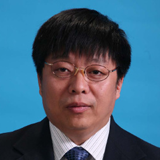 Derong Liu received the Ph.D. degree in electrical engineering from the University of Notre Dame in 1994. He was a Staff Fellow with General Motors Research and Development Center, Warren, MI, from 1993 to 1995. He was an Assistant Professor in the Department of Electrical and Computer Engineering, Stevens Institute of Technology, Hoboken, NJ, from 1995 to 1999. He joined the University of Illinois at Chicago in 1999, and became a Full Professor of electrical and computer engineering and of computer science in 2006. He was selected for the “100 Talents Program” by the Chinese Academy of Sciences in 2008. He has published 14 books (six research monographs and eight edited volumes). Currently, he is the Editor-in-Chief of the IEEE Transactions on Neural Networks and Learning Systems. He received the Faculty Early Career Development (CAREER) award from the National Science Foundation (1999), the University Scholar Award from University of Illinois (2006-2009), and the Overseas Outstanding Young Scholar Award from the National Natural Science Foundation of China (2008). He is a Fellow of the IEEE and a Fellow of the INNS. Derong Liu received the Ph.D. degree in electrical engineering from the University of Notre Dame in 1994. He was a Staff Fellow with General Motors Research and Development Center, Warren, MI, from 1993 to 1995. He was an Assistant Professor in the Department of Electrical and Computer Engineering, Stevens Institute of Technology, Hoboken, NJ, from 1995 to 1999. He joined the University of Illinois at Chicago in 1999, and became a Full Professor of electrical and computer engineering and of computer science in 2006. He was selected for the “100 Talents Program” by the Chinese Academy of Sciences in 2008. He has published 14 books (six research monographs and eight edited volumes). Currently, he is the Editor-in-Chief of the IEEE Transactions on Neural Networks and Learning Systems. He received the Faculty Early Career Development (CAREER) award from the National Science Foundation (1999), the University Scholar Award from University of Illinois (2006-2009), and the Overseas Outstanding Young Scholar Award from the National Natural Science Foundation of China (2008). He is a Fellow of the IEEE and a Fellow of the INNS.University of Illinois at Chicago | Self-Learning Control of Nonlinear Systems based on Iterative Adaptive Dynamic Programming Approach
| WLB210 |
| Dec. 17, 2013 2:30p.m. |  Prof. Joseph Tan Prof. Joseph TanBiography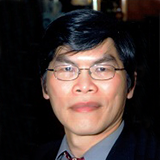 Joseph Tan, Dip (Civil Engr.), BS (Math & Comp. Sc.), MA (Ind. & Mgmt Engr.), and PhD (MIS) is Wayne C Fox Chair of eBusiness Innovation and Professor of eHealth Informatics, DeGroote School of Business, McMaster University. Prior to joining McMaster, he was Associate Professor and Acting Director of the MHA program, Department of Healthcare & Epidemiology, UBC Faculty of Medicine, Adjunct Faculty at the UVic School of Health Informatics, Research Fellow at BCIT Technology Center, and Professor & Chair of the ISM Department, SBA, Wayne State University, USA. Professor Tan is the founding and ongoing Editor-in-Chief, IJHISI and has served as distinguished faculty, invited speaker, panel moderator, research fellow and keynote for numerous local as well as major national and international conferences across North America, Asia, Middle East and Africa. Professor Tan has also been named as among the “top 10 most influential informatics professors” on HealthTechTopia website, invited to publish in the scientific journal, Nature, and sits on multiple peer-review federal grant agencies and journal editorial boards. He has a professional background that spans a broad spectrum of interdisciplinary and trans-disciplinary research area. A lead investigator in redefining the frontiers of multidisciplinary Business and Health IT knowledge development, management and expansion, including active involvement in collaborative research and multidisciplinary joint-grant submissions, Dr. Tan has demonstrated skills and ability to serve in both academia and industry. Dr. Tan has been widely cited among various academic research communities, is among best-selling authors of scholarly books in health IT/IS areas, and has achieved recognized scholarship in teaching and learning with students’ nominations for teaching excellence awards. His overall career focus is on reshaping the landscape of IS/IT applications and promotion in e-Health informatics through cross-disciplinary thinking/project partnering with diverse practitioners, clinicians, researchers, and a variety of user communities. Joseph Tan, Dip (Civil Engr.), BS (Math & Comp. Sc.), MA (Ind. & Mgmt Engr.), and PhD (MIS) is Wayne C Fox Chair of eBusiness Innovation and Professor of eHealth Informatics, DeGroote School of Business, McMaster University. Prior to joining McMaster, he was Associate Professor and Acting Director of the MHA program, Department of Healthcare & Epidemiology, UBC Faculty of Medicine, Adjunct Faculty at the UVic School of Health Informatics, Research Fellow at BCIT Technology Center, and Professor & Chair of the ISM Department, SBA, Wayne State University, USA. Professor Tan is the founding and ongoing Editor-in-Chief, IJHISI and has served as distinguished faculty, invited speaker, panel moderator, research fellow and keynote for numerous local as well as major national and international conferences across North America, Asia, Middle East and Africa. Professor Tan has also been named as among the “top 10 most influential informatics professors” on HealthTechTopia website, invited to publish in the scientific journal, Nature, and sits on multiple peer-review federal grant agencies and journal editorial boards. He has a professional background that spans a broad spectrum of interdisciplinary and trans-disciplinary research area. A lead investigator in redefining the frontiers of multidisciplinary Business and Health IT knowledge development, management and expansion, including active involvement in collaborative research and multidisciplinary joint-grant submissions, Dr. Tan has demonstrated skills and ability to serve in both academia and industry. Dr. Tan has been widely cited among various academic research communities, is among best-selling authors of scholarly books in health IT/IS areas, and has achieved recognized scholarship in teaching and learning with students’ nominations for teaching excellence awards. His overall career focus is on reshaping the landscape of IS/IT applications and promotion in e-Health informatics through cross-disciplinary thinking/project partnering with diverse practitioners, clinicians, researchers, and a variety of user communities.McMaster University | Mapping the Next Generation Human Health on a Global Scale: Eight e-Health Mega-Themes & Trends
| WLB211 |
| Feb. 11, 2014 2:30p.m. |  Prof. Jian Pei Prof. Jian PeiBiography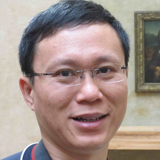 Jian Pei is currently a professor at the School of Computing Science at Simon Fraser University, Canada. He received a Ph.D. degree in Computing Science from the same school in 2002, under Dr. Jiawei Han’s supervision. His research interests can be summarized as developing effective and efficient data analysis techniques for novel data intensive applications. Particularly, he is currently interested in various techniques of data mining, information retrieval, data warehousing, online analytical processing, and database systems, as well as their applications in social networks, network security informatics, healthcare informatics, business intelligence, and web search. His research outcome has been adopted by industry production systems. He has published prolifically in premier academic venues. His publications have been cited more than 20,000 times. His research has been supported in part by many government agencies, such as Natural Sciences and Engineering Research Council of Canada (NSERC) and the National Science Foundation (NSF) of the United States, and many industry partners, such as Microsoft, Hewlett-Packard Company (HP), IBM Corporation, SAP Business Objects, Pacific Blue Cross, Fortinet, and the Canadian Imperial Bank of Commerce (CIBC). Currently, his priority in research is on developing industry relations and collaboration, and transferring his technologies to industry applications. He is also actively serving the professional communities. He is currently the editor-in-chief of IEEE Transactions of Knowledge and Data Engineering, and an associate editor or editorial board member of several premier journals in his areas. He has played key roles in many top academic conferences. He is a director of ACM SIGKDD and an ACM Distinguished Speaker. He is an IEEE Fellow and he received several prestigious awards. Jian Pei is currently a professor at the School of Computing Science at Simon Fraser University, Canada. He received a Ph.D. degree in Computing Science from the same school in 2002, under Dr. Jiawei Han’s supervision. His research interests can be summarized as developing effective and efficient data analysis techniques for novel data intensive applications. Particularly, he is currently interested in various techniques of data mining, information retrieval, data warehousing, online analytical processing, and database systems, as well as their applications in social networks, network security informatics, healthcare informatics, business intelligence, and web search. His research outcome has been adopted by industry production systems. He has published prolifically in premier academic venues. His publications have been cited more than 20,000 times. His research has been supported in part by many government agencies, such as Natural Sciences and Engineering Research Council of Canada (NSERC) and the National Science Foundation (NSF) of the United States, and many industry partners, such as Microsoft, Hewlett-Packard Company (HP), IBM Corporation, SAP Business Objects, Pacific Blue Cross, Fortinet, and the Canadian Imperial Bank of Commerce (CIBC). Currently, his priority in research is on developing industry relations and collaboration, and transferring his technologies to industry applications. He is also actively serving the professional communities. He is currently the editor-in-chief of IEEE Transactions of Knowledge and Data Engineering, and an associate editor or editorial board member of several premier journals in his areas. He has played key roles in many top academic conferences. He is a director of ACM SIGKDD and an ACM Distinguished Speaker. He is an IEEE Fellow and he received several prestigious awards.Simon Fraser University | Towards Connecting Big Data with Many People
| WLB109 |
| Mar 14. 2014 4:30p.m. |  Prof. Walter Gautschi Prof. Walter GautschiBiography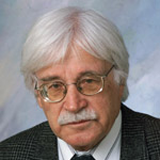 W.G.. Ph.D., University of Basel, 1953 (thesis advisor: Prof. A. Ostrowski); Post Doc at Istituto Nazionale per le Applicazioni del Calcolo, Rome and at Harvard Computation Laboratory; Research Mathematician at the National Bureau of Standards, Washington, DC, 1956–1959 and at Oak Ridge National Laboratory, 1959-1963; Professor of Mathematics and Computer Science, Purdue University, 1963-2000; Professor Emeritus, since 2000. Fulbright Scholar at the Technical University of Munich, 1970-1971; Visiting Professorships at the University of Wisconsin, 1971-1977, and at various other academic institutions, notably the University of Padua, the Polytechnics of Milan and Turin, ETH Zurich, and the University of Basel. Lecturer at numerous national and international meetings; Invited Lecturer at anniversary meetings for Christoffel (Aachen, 1979), Tricomi (Rome, 1997), Euler (Zurich, 2007), and Lagrange (Turin, 2013). Foreign member of the Bavarian Academy of Sciences (since 2001) and the Turin Academy of Sciences (since 2001). Selected works with commentaries published 2014 in three volumes by Birkhäuser. W.G.. Ph.D., University of Basel, 1953 (thesis advisor: Prof. A. Ostrowski); Post Doc at Istituto Nazionale per le Applicazioni del Calcolo, Rome and at Harvard Computation Laboratory; Research Mathematician at the National Bureau of Standards, Washington, DC, 1956–1959 and at Oak Ridge National Laboratory, 1959-1963; Professor of Mathematics and Computer Science, Purdue University, 1963-2000; Professor Emeritus, since 2000. Fulbright Scholar at the Technical University of Munich, 1970-1971; Visiting Professorships at the University of Wisconsin, 1971-1977, and at various other academic institutions, notably the University of Padua, the Polytechnics of Milan and Turin, ETH Zurich, and the University of Basel. Lecturer at numerous national and international meetings; Invited Lecturer at anniversary meetings for Christoffel (Aachen, 1979), Tricomi (Rome, 1997), Euler (Zurich, 2007), and Lagrange (Turin, 2013). Foreign member of the Bavarian Academy of Sciences (since 2001) and the Turin Academy of Sciences (since 2001). Selected works with commentaries published 2014 in three volumes by Birkhäuser.Purdue University | The Spiral of Theodorus, Numerical Analysis, and Special Functions
| WLB109 |
| Mar. 20, 2014 2:30p.m. |  Prof. Rama Chellappa Prof. Rama ChellappaBiography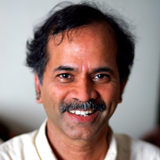 Prof. Rama Chellappa received the B.E. (Hons.) degree in Electronics and Communication Engineering from the University of Madras, India in 1975 and the M.E. (with Distinction) degree from the Indian Institute of Science, Bangalore, India in 1977. He received the M.S.E.E. and Ph.D. Degrees in Electrical Engineering from Purdue University, West Lafayette, IN, in 1978 and 1981 respectively. During 1981-1991, he was a faculty member in the department of EE-Systems at University of Southern California (USC). Since 1991, he has been a Professor of Electrical and Computer Engineering (ECE) and an affiliate Professor of Computer Science at University of Maryland (UMD), College Park. He is also affiliated with the Center for Automation Research, the Institute for Advanced Computer Studies (Permanent Member) and is serving as the Chair of the ECE department. In 2005, he was named a Minta Martin Professor of Engineering. His current research interests are face recognition, clustering and video summarization, 3D modeling from video, image and video-based recognition of objects, events and activities, dictionary-based inference, compressive sensing, domain adaptation and hyper spectral processing. Prof. Chellappa received an NSF Presidential Young Investigator Award, four IBM Faculty Development Awards, an Excellence in Teaching Award from the School of Engineering at USC, and two paper awards from the International Association of Pattern Recognition (IAPR). He is a recipient of the K.S. Fu Prize from IAPR. He received the Society, Technical Achievement and Meritorious Service Awards from the IEEE Signal Processing Society. He also received the Technical Achievement and Meritorious Service Awards from the IEEE Computer Society. At UMD, he was elected as a Distinguished Faculty Research Fellow, as a Distinguished Scholar-Teacher, received an Outstanding Innovator Award from the Office of Technology Commercialization, and an Outstanding GEMSTONE Mentor Award from the Honors College. He received the Outstanding Faculty Research Award and the Poole and Kent Teaching Award for Senior Faculty from the College of Engineering. In 2010, he was recognized as an Outstanding ECE by Purdue University. He is a Fellow of IEEE, IAPR, OSA and AAAS. He holds four patents. Prof. Chellappa served as the Editor-in-Chief of IEEE Transactions on Pattern Analysis and Machine Intelligence. He has served as a General and Technical Program Chair for several IEEE international and national conferences and workshops. He is a Golden Core Member of the IEEE Computer Society and served as a Distinguished Lecturer of the IEEE Signal Processing Society. Recently, he completed a two-year term as the President of the IEEE Biometrics Council. University of Maryland, College Park | The Evolution of Probabilistic Models and Uncertainty Analysis in Computer Vision Research
| RRS905 |
| Apr. 9, 2014 4:30p.m. |  Prof. Lucila Ohno-Machado Prof. Lucila Ohno-MachadoBiography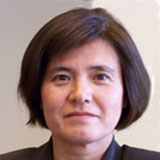 Lucila Ohno-Machado, MD, PhD is Associate Dean for Informatics and Technology at the School of Medicine, University of California San Diego, founding chief of the Division of Biomedical Informatics and Professor of Medicine. She received her medical degree from the University of Sao Paulo and her doctoral degree in medical information sciences and computer science from Stanford. She leads a group of biomedical informatics faculty with diverse backgrounds in biomedicine, and quantitative sciences. Prior to her current position, she was faculty at Brigham and Women’s Hospital, Harvard Medical School and at the MIT Division of Health Sciences and Technology and former director of its informatics training program. Dr. Ohno-Machado is an elected fellow of the American Institute for Medical and Biological Engineering and of the American College of Medical Informatics, American Society for Clinical Investigation, and Editor-In-Chief for the Journal of the American Medical Informatics Association (AMIA). She is past chair of the scientific program committee for the AMIA Annual Symposium and has served in review boards for NIH and other funding agencies. Lucila Ohno-Machado, MD, PhD is Associate Dean for Informatics and Technology at the School of Medicine, University of California San Diego, founding chief of the Division of Biomedical Informatics and Professor of Medicine. She received her medical degree from the University of Sao Paulo and her doctoral degree in medical information sciences and computer science from Stanford. She leads a group of biomedical informatics faculty with diverse backgrounds in biomedicine, and quantitative sciences. Prior to her current position, she was faculty at Brigham and Women’s Hospital, Harvard Medical School and at the MIT Division of Health Sciences and Technology and former director of its informatics training program. Dr. Ohno-Machado is an elected fellow of the American Institute for Medical and Biological Engineering and of the American College of Medical Informatics, American Society for Clinical Investigation, and Editor-In-Chief for the Journal of the American Medical Informatics Association (AMIA). She is past chair of the scientific program committee for the AMIA Annual Symposium and has served in review boards for NIH and other funding agencies.University of California San Diego | Preserving Individual and Institutional Privacy in Distributed Regression Models
| LT3 |
| Apr. 24, 2014 10:30a.m. |  Prof. Christian S. Jensen Prof. Christian S. JensenBiography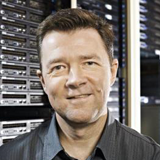 Christian S. Jensen is a Professor of Computer Science at Aalborg University, Denmark, and he was previously with Aarhus University for three years and spent a 1-year sabbatical at Google Inc., Mountain View. His research concerns data management and data-intensive systems, and its focus is on temporal and spatio-temporal data management. Christian is an ACM and an IEEE fellow, and he is a member of Academia Europaea, the Royal Danish Academy of Sciences and Letters, and the Danish Academy of Technical Sciences. He has received several national and international awards for his research. He is an Editor-in-Chief of The VLDB Journal and will take over as Editor-in-Chief of ACM Transactions on Database Systems in June. Christian S. Jensen is a Professor of Computer Science at Aalborg University, Denmark, and he was previously with Aarhus University for three years and spent a 1-year sabbatical at Google Inc., Mountain View. His research concerns data management and data-intensive systems, and its focus is on temporal and spatio-temporal data management. Christian is an ACM and an IEEE fellow, and he is a member of Academia Europaea, the Royal Danish Academy of Sciences and Letters, and the Danish Academy of Technical Sciences. He has received several national and international awards for his research. He is an Editor-in-Chief of The VLDB Journal and will take over as Editor-in-Chief of ACM Transactions on Database Systems in June.Aarhus University | Keyword-Based Spatial Web Querying
| WLB109 |
| Copyright © 2025 Department of Computer Science, Hong Kong Baptist University. All rights reserved. |
HKBU |
COMP |
Contact Us |
Privacy Policy |

|